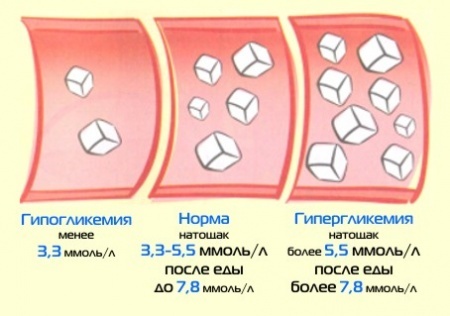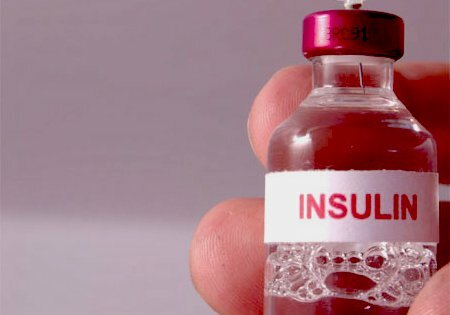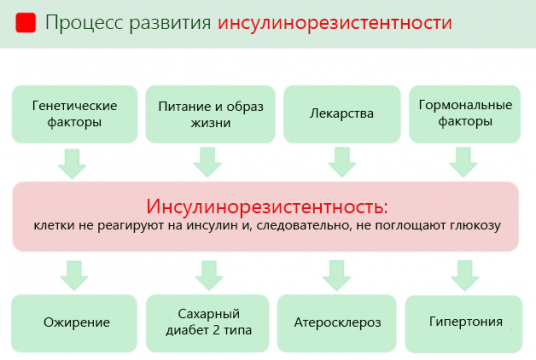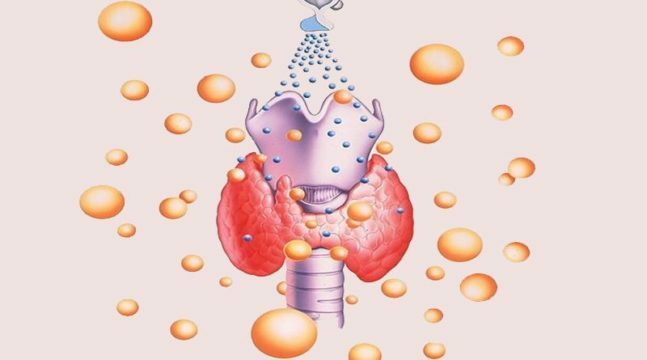Insulin is the most important hormone for maintaining normal metabolism in the human body. The norm of insulin in the blood, obtained during the analysis on the hormone, can explain many processes associated with the metabolism.
Very often the result of analysis above the norm can explain the presence of excess weight. If the level is lower than normal, a clinical picture can be observed with a poor digestibility of carbohydrates and, as a consequence, the weight will be inadequate. Many women are interested in what is the normal content of insulin in women? The first thing you need to know - in men and women, the rates of the rates are absolutely identical to , except for women in a state of pregnancy and children.

The only regularity is that men have a higher risk of getting diabetes after a forty-year period, because of their greater propensity for an incorrect lifestyle. Therefore, men should carefully monitor the health of the pancreas. The action of insulin is aimed at regulating the metabolism of carbohydrates. Its mechanism of action is simple - after eating, it begins to increase significantly with glucose, roughly speaking, the higher the glucose, the higher the insulin. To regulate the increased level of glucose, insulin is increased to assimilate the carbohydrates obtained, and also, so that the cells can get the sugar. Thanks to this hormone, glucose, potassium, and interchangeable and irreplaceable amino acids are transferred.
Norms of indicators
First of all, people with suspected diabetes mellitus receive the direction for taking the hormone level test. Due to the indicators, it is possible to reveal a more accurate picture in the diagnosis of the disease( what type of diabetes, how neglected the situation is).
- in a healthy person, the indices will be in the range of 3 - 26 μED per milliliter;
- in children the indices start from 3 to 19 micrograms per milliliter( somewhat lower than in adults);
- is normal, higher than normal, in pregnant women, from 6 to 28 micrograms per milliliter are considered, and in elderly people the rate starts from 6 to 35 micrograms per milliliter.
How to properly pass the
- analysis as for most hormone assays, blood surrenders strictly on an empty stomach;
- the day before the test is done, you must exclude intense physical activity;
- 12 hours before the hormone is not allowed to eat, it is forbidden to drink sutra tea, coffee or juice, you can only regular non-carbonated water. The minimum period between the test and food intake is 8 hours;
- also 2 days before the scheduled date in the laboratory you need to stop eating fat food
- on the eve you can not drink alcoholic beverages;
- 2-3 hours before the test, you can not smoke;
- girls can take a test for this hormone regardless of the day of the menstrual cycle, since insulin does not belong to sex hormones, and the date of the cycle will not affect the result obtained in any way.
Elevated insulin level

The value above the norm can be caused by:
- by constant exhausting physical exertion( especially it concerns the fair sex who likes to exhaust himself with excess loads in the gym);
- chronic experiences and stressful situations;
- certain pathologies of the liver and biliary tract;
- type 2 diabetes mellitus;
- elevated levels of growth hormone in the body( acromegaly);
- Cushing's syndrome, obesity;
- monsulinoma( a neoplasm capable of distorting the indices in the overestimated side);
- with dystrophic mitotonia( neuromuscular conduction disease);
- violation of metabolic processes;
- malfunction of the pituitary gland;
- polycystic ovary syndrome( exclusively female disease);
- with benign neoplasms in the adrenal glands;
- with pancreatic diseases.
What can a lower level of values indicate?
A low level sometimes indicates:
- type 1 diabetes;
- a permanent sedentary lifestyle, especially in men;
- problems in the functioning of the pineal gland;
- excessive physical activity( especially on an empty stomach);
- daily intake of excessive amounts of sugar and flour;
- strong nerve strain;
- is a chronic course of an infectious disease.
Insulin resistance index and why it is performed

The insulin resistance index is a specific test that is conducted to detect insulin resistance. Before its surrender, an extra physical load is eliminated, so that the resulting index after testing is not distorted. Insulin resistance is a violation of the biological response in the body tissues to the insulin obtained from the outside or produced inside.
To obtain the indices of this index, you must enter insulin intravenously on an empty stomach at a rate of 0.1 unit per 1 kg of body weight. After the introduction of the substance, it is necessary to measure the glucose level in the body every minute for fifteen minutes( short testing).Or, it is possible to measure the glucose level every 5 minutes for 40 minutes from the time of intravenous administration.
The long version of the test is to measure the glucose level every 10 minutes for an hour. Testing is possible for everyone, including men and children. Suspicions of insulin resistance can be caused by such factors:
- obesity or intense fat in the abdominal area( waist, flanks and abdomen);
- protein detection in urinalysis;
- chronically elevated blood pressure;
- is a poor indicator of total cholesterol and triglycerides in the blood.
The most obvious symptom among all is the fatness on the waist and abdomen. Knowing your insulin resistance index will help to avoid many health problems in the future. The index of insulin resistance is recommended to be known to everyone after 40 years, especially to men, because they are prone to abdominal obesity genetically. Moreover, after 40 physical activities in people are sharply reduced.



